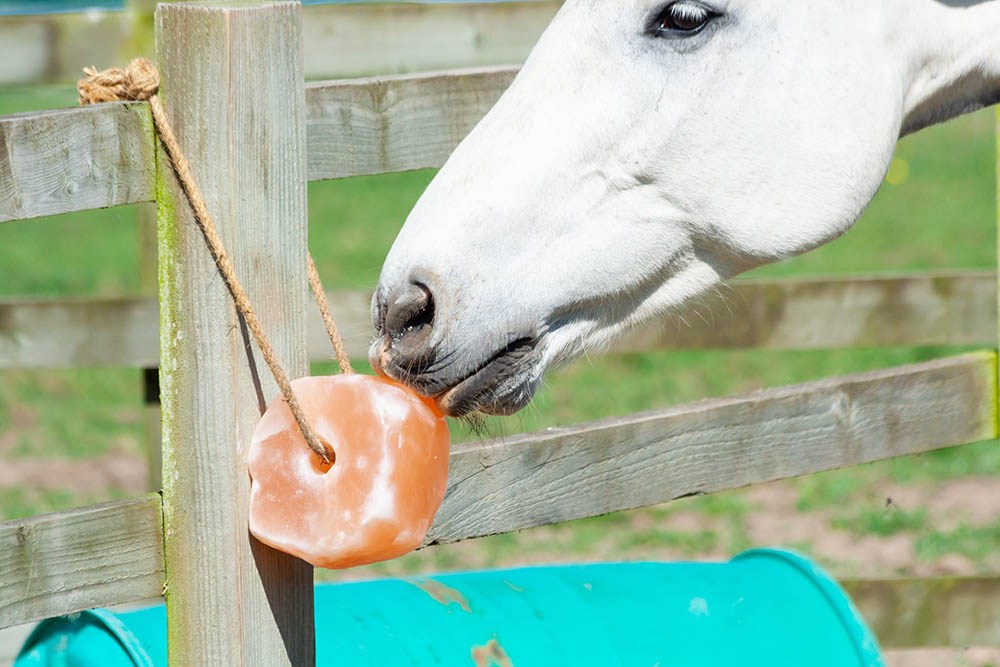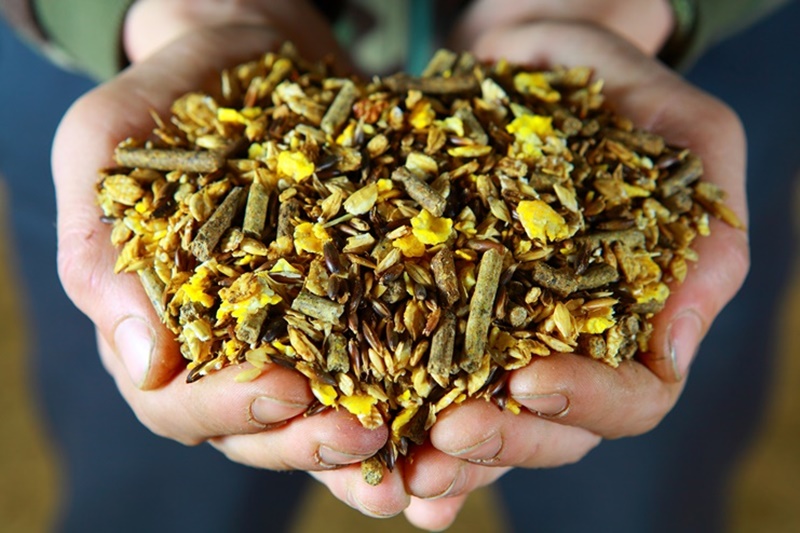If you ever wanted to surprise your horse with a new delicacy you’ve certainly looked for lists of “what can horses eat?” In this article, we advise which foods are safe for horses to eat, and which can pose danger.
Remember that feeding your horses proper food is extremely important and ensures adequate nutrition and condition for your companions. Additionally, horses have delicate digestive systems which may not be able to tolerate the foods that humans eat on a daily basis.
What can horses eat?
Which products are safe for horses to eat? Check out the following list!
Hay
Hay is full of unbelievably valuable vitamins and minerals so it’s the best food choice for horses during winter and autumn when the pastures are no longer lush green. Before giving your horse hay, make sure it’s of excellent quality, it’s not contaminated and overly dusty.
Alfalfa
Alfalfa and alfalfa hay are vitamin bombs for horses and additionally, a better choice than the standard hay. Alfalfa is full of fiber and has a significant effect on horses and doesn’t strain the stomach.
Grass
Grass is a natural food for horses, they love to eat it so it’s important to ensure that they have daily access to grass and green fodder, especially in spring and summer.
Green fodder usually contains various tiny plants and herbs, which can greatly supplement a horse’s diet. However, you should be cautious not to overfeed your horses with green fodder right after colder months when there is a lack of fresh products since their stomachs need to adapt to this type of food.
Moreover, if your horse is overweight you should monitor its grass intake since fresh grass contains a substantial amount of sugar.
Rules you should follow to avoid horse overfeeding and gaining excess weight:
- Use a grazing muzzle – Muzzles efficiently decrease the intake of food while your horse is grazing. If you have an overweight horse this product is a must-have that helps you maintain the proper weight of your companion. Keep in mind that excess weight can cause movement problems and even death.
- Keep the meals small – Feed your horses often but keep the meals small. The worst mistake you can make while feeding your horses is feeding them large quantities of food which a horse’s stomach cannot handle. Stable horses should eat as they do in nature, often but not much.
- Care about the quality of feeds and maintain the condition of pastures – Not always can horses decide whether the food given to them is beneficial or not, especially if fed by hand. Be the quality inspector they need and watch what your horses eat.
- Feed your horses at fixed times of the day – horses like routine so stick with fixed times for feeding forage to your horses so that their biological clock properly adapts to those times of the day.

What products are safe for horses?
You can safely give these foods to your horse as a treat but be careful not to give them in big amounts, because they may prove to be difficult for the horse to digest.
- Peanut butter – In small amounts safe for horses. You should choose a natural product without any additives to make sure your horse won’t have digestive problems.
- Cinnamon – In small amounts, cinnamon is safe for horses and a tasty treat for them. It’s a clever idea to add cinnamon to homemade treats – it’ll make the treats even tastier for your horse.
- Honey – Honey contains massive amounts of vitamin C and horses love it as a treat. Additionally, it has beneficial antibiotic properties, so feel free to give it to your horse – but do it in moderation!
- Pumpkin – Horses love pumpkins, especially orange ones, so you can safely give your horse a small piece during the pumpkin harvest period.
- Raisins – Raisins are full of sugars and can give your horse an energy boost but remember to treat them as an occasional treat, not a feed.
- Bananas – These rich in potassium fruits are eagerly eaten by horses thanks to their taste and consistency.
- Pineapple – This fruit is safe for horses if it’s given without the skin! If you prepare the fruit beforehand, then your horse will defiantly enjoy it as a treat.
- Orange – Horses like citrus, they can even eat a whole lemon! Oranges are full of vitamin C and antioxidants, so you can safely give them to your horse.
- Peaches – These fruits are a true vitamin bomb! They contain fiber, potassium and vitamin A. Remember to extract the stone before giving the fruit to your horse.
- Cherries – Fresh cherries are full of vitamins A and C, so they are a fantastic addition to your horse’s everyday diet. Rember to give them without the stone and stalks.
Can you feed your horses grains?
If you choose the grains adequately for your horse’s diet, then they’re not only not harmful but will enrich your horse’s diet with essential vitamins and minerals.
- Oats – because they contain 13% fiber, oats are one of the most popular grains to feed horses. Remember to choose an adequate amount of oats for each meal to avoid painful colic.
- Corn – corn is a high booster of energy so remember to give it only in small amounts.
- Barley – barley contains smaller amounts of fiber in comparison to oats and corn, however, it’s a grain safe for horses that could help your horse gain weight.

Is salt safe for horses?
Salt is beneficial for your horse – it’ll replenish any mineral deficiencies and prevent the horse from getting bored in a stall or a pasture. That’s why it’s a good idea to give your horse access to a salt lick in its stall (especially during summer) so that it can make up for the deficiencies of vitamins and electrolytes.
Are store-bought feeds safe for horses?
Compound feeds are an excellent choice for big farms, where there is a herd of horses to be fed. These feeds are more convenient and usually don’t require any additional supplementation. You can choose several different types of feeds, depending on the type of horses you have; there are grain or grain-free feeds, energetic feed and feeds for weight loss or weight gain, etc. Each of these feeds will have a different composition, so make sure you are choosing the right one.
What products should you NOT give to your horse?
- Wheat and rice – Disturb the balance in the horse’s digestive system.
- Chocolate – can cause seizure attacks, colic, or digestive problems.
- Fruit stones – Before giving your horse any stone fruits remember to remove the stone. They can be harmful to horses.
- Tomatoes – Because tomatoes contain atropine, they cause colic in horses. Besides colic, they can also cause diarrhea and cand disturb normal body functions (mainly affecting the pulse). Additionally, you should avoid similar products such as eggplant or chili.
- Onion – The chemicals in onions are dangerous to the horse’s organism and cause anemia.
- Potatoes – These vegetables are hard to digest so giving them to horses in big amounts can cause serious digestive problems.

